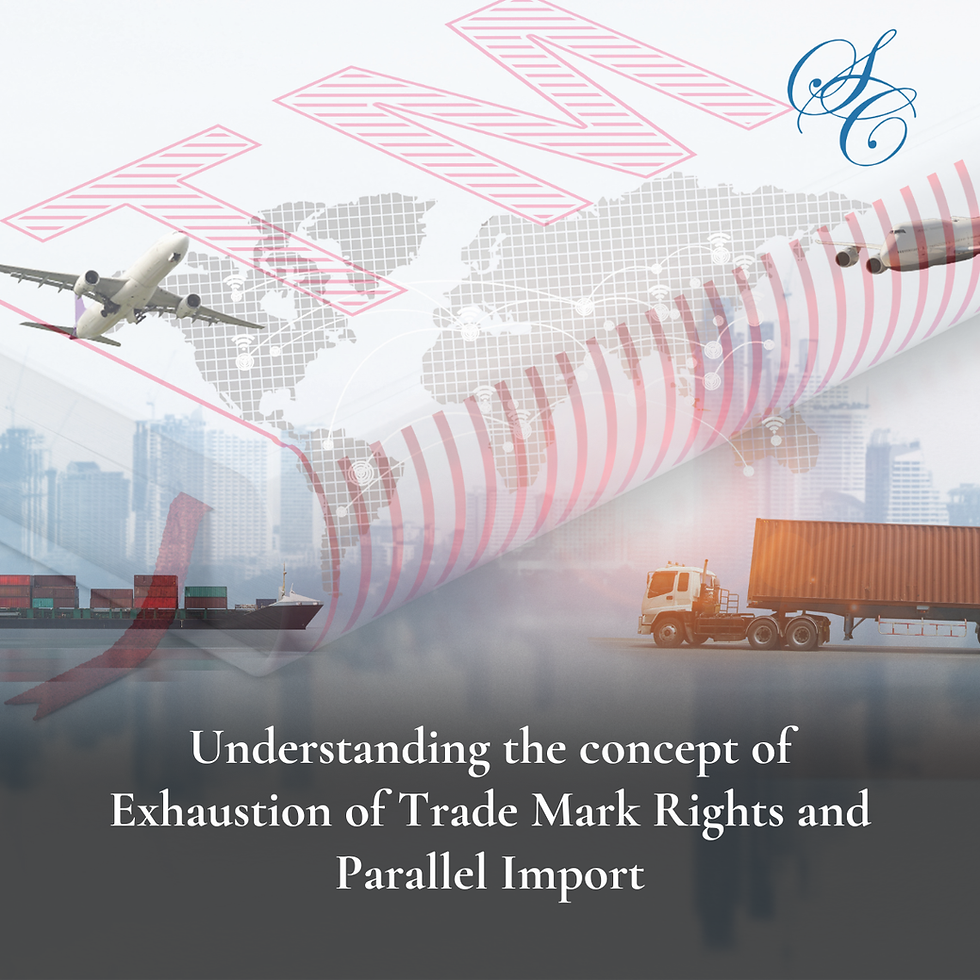In TM Infringement Suits – Complainants with Complex Corporate Structures can sue as “One Econ
- Sarwajeet Singh
- Apr 18, 2018
- 2 min read
Many multi-national companies have a complex corporate structure that often involves local Indian subsidiaries and a foreign parent, with trade mark ownership resting with the parent. In such a situation, must the foreign parent assign its Indian marks to the local subsidiary and must the subsidiary be impleaded as a co-plaintiff in a suit brought by the foreign parent? The Delhi High Court, in Levi Strauss & Co. v. Rajesh Agarwal recently held that complex corporate structures are to be treated as “one economic entity” in a suit for infringement, dispensing with the need to assign rights to the entity using the trademark.
The appeal arose out of a suit filed by Levi Strauss & Co. against a decision of a lower court vacating an injunction issued in favor of Levis. As per the lower court, Levi Strauss & Co. put on record sales and advertisement expenditure incurred by its local affiliate, Levi’s Strauss India Pvt. Ltd. However, it failed to produce any deed of assignment in favour of the Indian affiliate. Accordingly, the ex-parte ad interim injunction in favor or Levi Strauss & Co. should be vacated. Levi Strauss & Co. appealed, asserting that it, with all its affiliate and associate companies, including subsidiaries and related companies, ought to be treated as “one economic entity”.
The Delhi High Court held for Levi Strauss & Co., holding that the fact that the sales and advertising were carried out through the Indian affiliate company does not in any manner prejudice Levi Strauss & Co. because its Indian affiliate, Levi’s Strauss India Pvt. Ltd. and Levi Strauss & Co. ought to be treated as `one economic entity. The Court also held that, given that Levi Strauss & Co. is the registrant of the marks in question, no further assignments are required to establish the proprietary rights in the marks. Furthermore, the Court held that Levi’s Strauss India Pvt. Ltd. was not a necessary party to the suit.
This decision will, hopefully, encourage companies to do better business in this country. The decision of the Delhi High Court reinforces the law in regard to the issue in question. It also underscores the harmonization of trade mark law to make it consistent with the developments in trading and commercial practices, to keep up with increasing globalization of trade and industry, to encourage investment flows and transfer of technology, and to simplify and harmonize trade mark management systems.




Comments